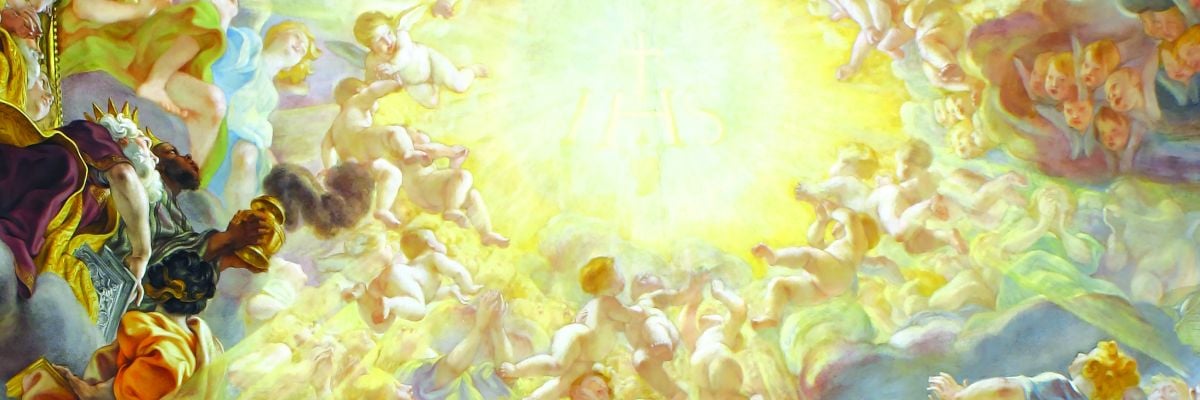
Question:
Answer:
As with much in Catholicism, it’s a both/and, not an either/or. Heaven has both spiritual and corporeal dimensions.
In his divine essence, Jesus is a divine person, the second person of the Holy Trinity, whose essence or nature is uncreated spirit (John 1:1-3). And yet Jesus is also the Incarnate Word, God who became man by taking on a human nature (John 1:14) so that we might be reconciled to God and enjoy a divine intimacy that exceeds what our first parents experienced before the fall (see the Catechism 374-79, 390, 410-12).
Because of his triumphant passion, death, and resurrection, Jesus atoned for our sins and perfected his humanity (see Hebrews 2:10, 5:7-10). That perfection included gaining a glorified body that doesn’t have the confining limitations we experience on Earth (see John 20:26, Luke 24:36).
Jesus then ascended into heaven, thereby completing his one paschal sacrifice (CCC 1085).
Those who die in the friendship of Christ will also triumph over sin and death, attaining a glorified body as we reign in eternal glory with the Lord (1 Cor. 15:35-57). As Jesus promises, his Father’s heavenly home has many rooms, and he has gone ahead of us to prepare a place for us (John 14:2)
So to good-naturedly baptize a modern exhortation from a bearded sage, “Stay faithful, my friend.”



